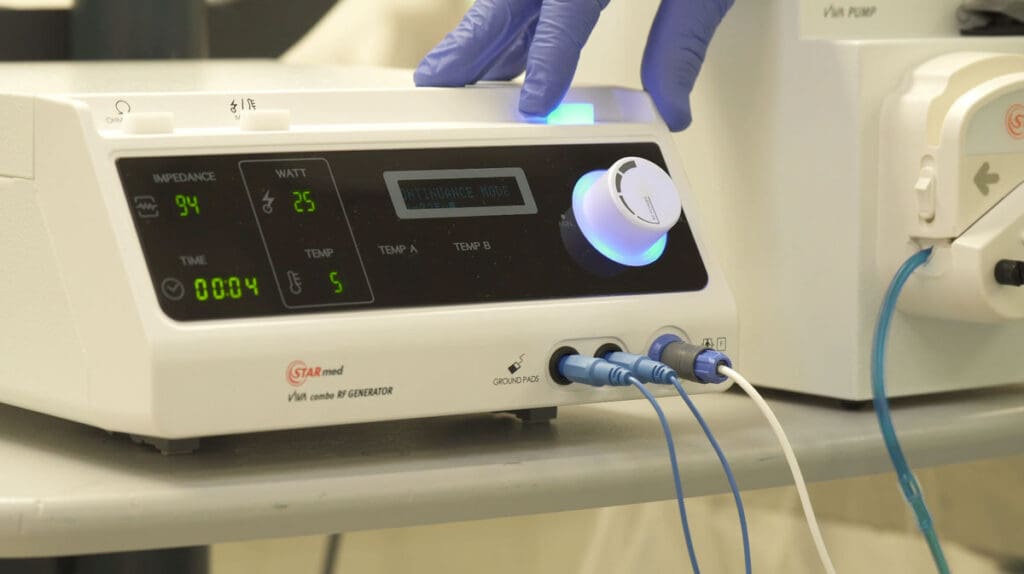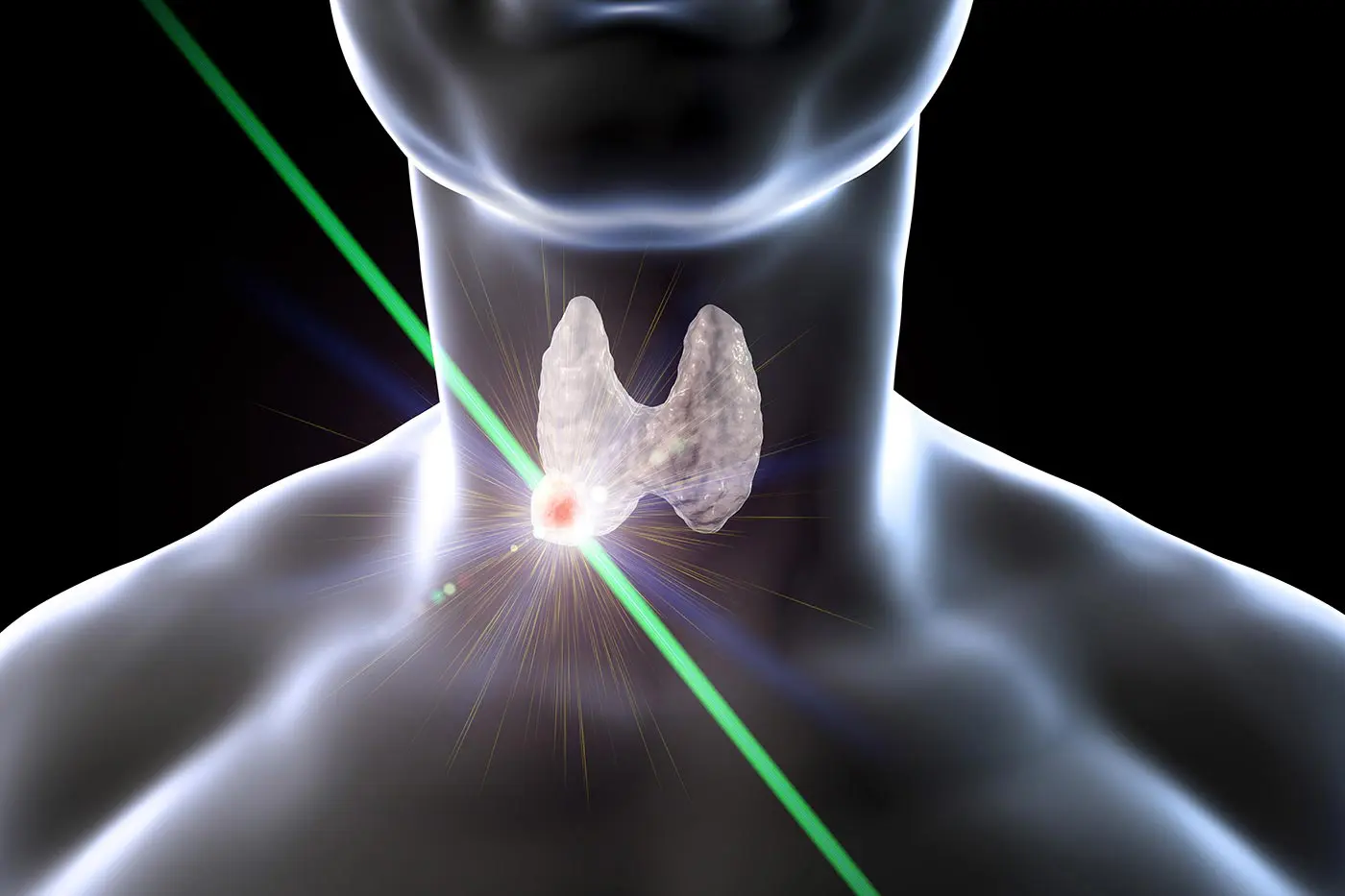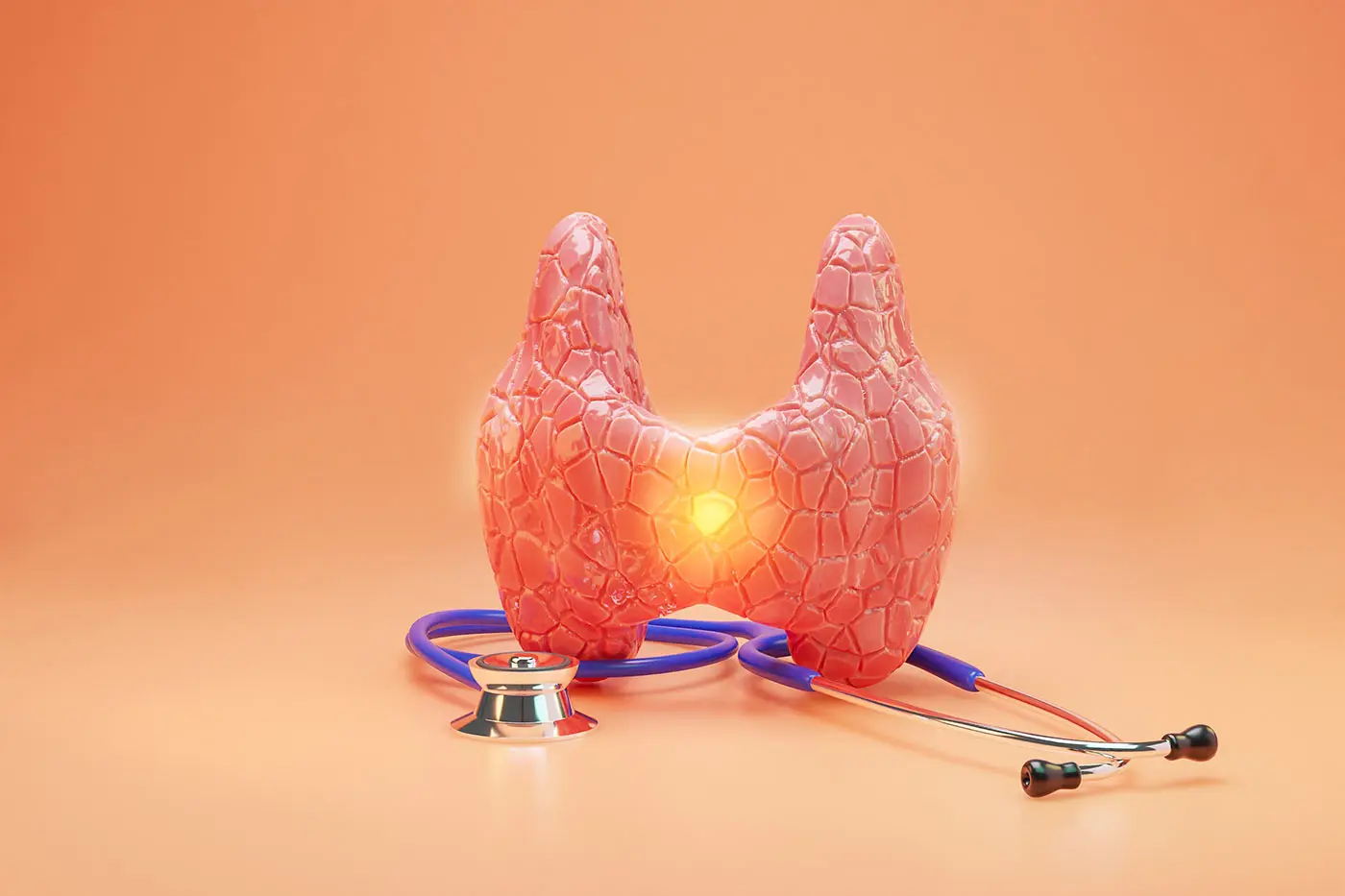Thermal ablation uses precise heat to shrink and destroy cancerous or benign lesions. This minimally invasive procedure has become a safe and effective way to treat thyroid nodules and uterine fibroids. Heat ablation can also help improve palliative care in endoluminal cancers.
During the procedure, a thin electrode needle is inserted directly into the lesion—guided by CT scanning or ultrasound imaging. Once inserted into the tissue, radiofrequency (RF) waves emit controlled heat into the abnormal tissue, coagulating and shrinking it over time. Other thermal ablation techniques use microwave or laser energy.
Let’s explore the proven benefits of thermal ablation procedures.
Thermal Ablation is Minimally Invasive and Precise
Thermal ablation helps avoid unnecessary invasive surgeries once used to treat benign lesions, like hysterectomies or thyroid resections. Thyroid and fibroid thermal ablation can be incision-free and use precise, controllable heat. The RF electrode is inserted directly into the fibroid or thyroid nodule to heat, shrink, and destroy lesions. Unlike traditional surgery, thermal ablation creates minimal risk of damaging healthy surrounding tissue and scarring.
Preserving healthy surrounding tissue helps maintain thyroid and uterine function, improving patients’ quality of life. Thyroid thermal ablation typically doesn’t alter the thyroid gland’s functionality—or has minimal impact. Fibroid ablation helps avoid destroying uterine tissue, potentially preserving tissue needed for optimal fertility.
Heat Ablation Reduces Risk of Complications
Thermal ablation’s non-invasive, non-scarring nature also offers minimal risk of complications. Patients do not have to undergo large incisions that inherently increase the risk of complications. In addition, thermal ablation procedures, like thyroid RFA, often don’t require any anesthesia.
Following a thermal ablation procedure, patients may experience minor bruising, swelling, or following ablation. However, potential side effects are often less severe than traditional surgery. It is rare for someone to experience severe bleeding, infection, and tissue damage after radiofrequency thermal ablation. However, misuse of thermal ablation technology can lead to complications like burns, cross-infection, ascites, and diarrhea.
Thermal Ablation Procedures Offer Quicker Recovery Time
Thermal ablation significantly decreases patient pain, scarring, and recovery time. After the procedure, patients are monitored like any other surgery. Pain management strategies are also enabled to help alleviate discomfort. However, unlike many invasive surgeries, thermal ablation is often an outpatient procedure. The non-invasive nature of thermal ablation also significantly reduces recovery time compared to traditional surgery.
During recovery, patients will still need to take pain medication as needed and avoid strenuous activities. However, because thermal ablation is better at preserving healthy surrounding tissues, it creates a shorter and less painful recovery time. This quick recovery helps improve the quality of life following an ablation procedure.
Thermal Ablation Devices Have High Efficacy in Thyroid and Fibroid Treatment

Clinical evidence shows thermal ablation is an effective way to treat thyroid nodules and uterine fibroids. When used in thyroid nodule treatment, ablation’s thermal heat helps shrink and destroy thyroid nodules caused by thyroid disease.
Observational studies show thyroid nodules had a median volume reduction rate (VRR) of 73% at 6 months and 76% at 12 months after radiofrequency ablation. The volume reduction rate (VRR) of non-functioning benign thyroid nodules (NFBTN) was 80% at 12 months and 95% at 60 months.
Radiofrequency ablation also helps treat painful noncancerous uterine fibroids. Fibroids can be debilitating and affect fertility. Ablation gives patients a chance to improve pain symptoms that affect their quality of life. It may also improve fertility and reduce patient risk of reproductive disorders.
Observational studies found fibroid radiofrequency ablation offered a VRR of up to 73.5% after 12 months. Thermal ablation also significantly reduced patient symptoms one month after the procedure.
Thermal Ablation Improves Palliative Care in Endoluminal Cancers
Thermal ablation treatments are an evolving cancer treatment that offers quality-of-life-improving palliative care for patients with cholangiocarcinoma (CCA) and pancreatic ductal adenocarcinoma (PDAC).
Destroying cancer in delicate biliary ducts was once completely inaccessible through traditional surgery. Endoluminal thermal ablation can access these structures to clear obstructions and tumor growth, offering palliative care for patients with hepatic, biliary, or pancreatic unresectable endoluminal lesions.
Multiple prospective single and multicenter studies found thermal ablation helps avoid significant vessel and bile duct injury, improving patient quality of life. Researchers have also found endoluminal radiofrequency ablation improves biliary drainage and improves survival rates.
Ablation is Safe and Effective
Clinical evidence finds that radiofrequency thermal ablation is a safe and effective treatment for various lesions. The procedure usually preserves healthy tissue while destroying and shrinking unwanted lesions. Over time, studies show thermal ablation procedures significantly reduce the size of thyroid nodules and uterine fibroids.
It’s important to note that the effectiveness of ablation in cancer treatment depends on the type and stage of the tumor. For early-stage tumors, ablation offers a high chance of permanently destroying cancerous tissue. However, advanced tumors may require additional procedures or combined treatment approaches—like multimodal ablation or immuno-ablation.
Learn More About Thermal Ablation
STARmed America is a leader in radiofrequency thermal ablation technology and introduced the first Thyroid radiofrequency ablation device in the U.S. The STARmed VIVA combo RF System is also FDA-cleared for percutaneous and intraoperative coagulation and ablation of tissue.
Our minimally invasive thermal ablation devices can help improve your patient’s care with minimal to no scarring and tissue damage. We also provide consultations to help integrate thermal ablation into your treatment plans.
Contact a STARmed representative to learn more about thermal ablation technology.






One Response
One thing that really stood out to me was how you emphasized the minimally invasive nature of the procedure and its ability to provide long-lasting pain relief.